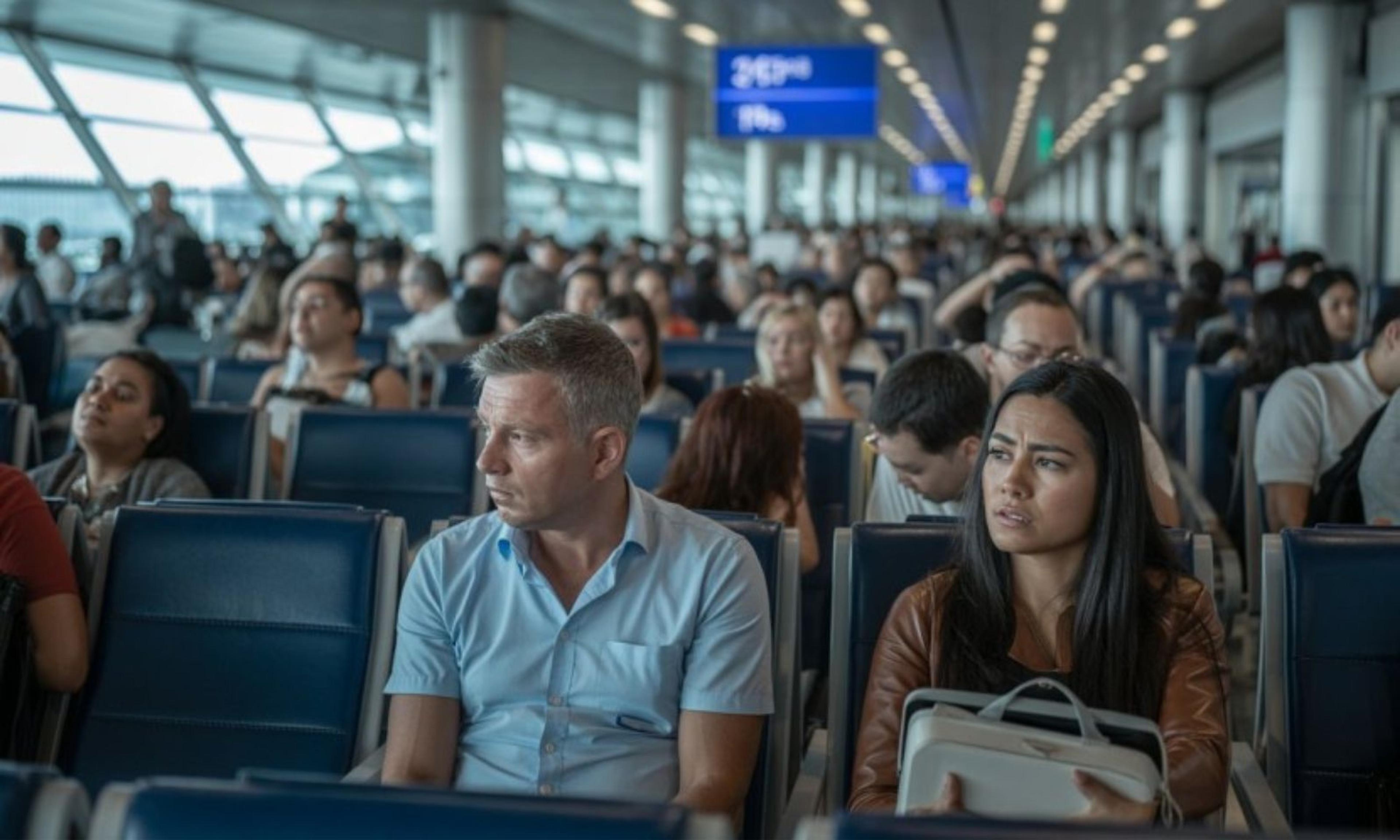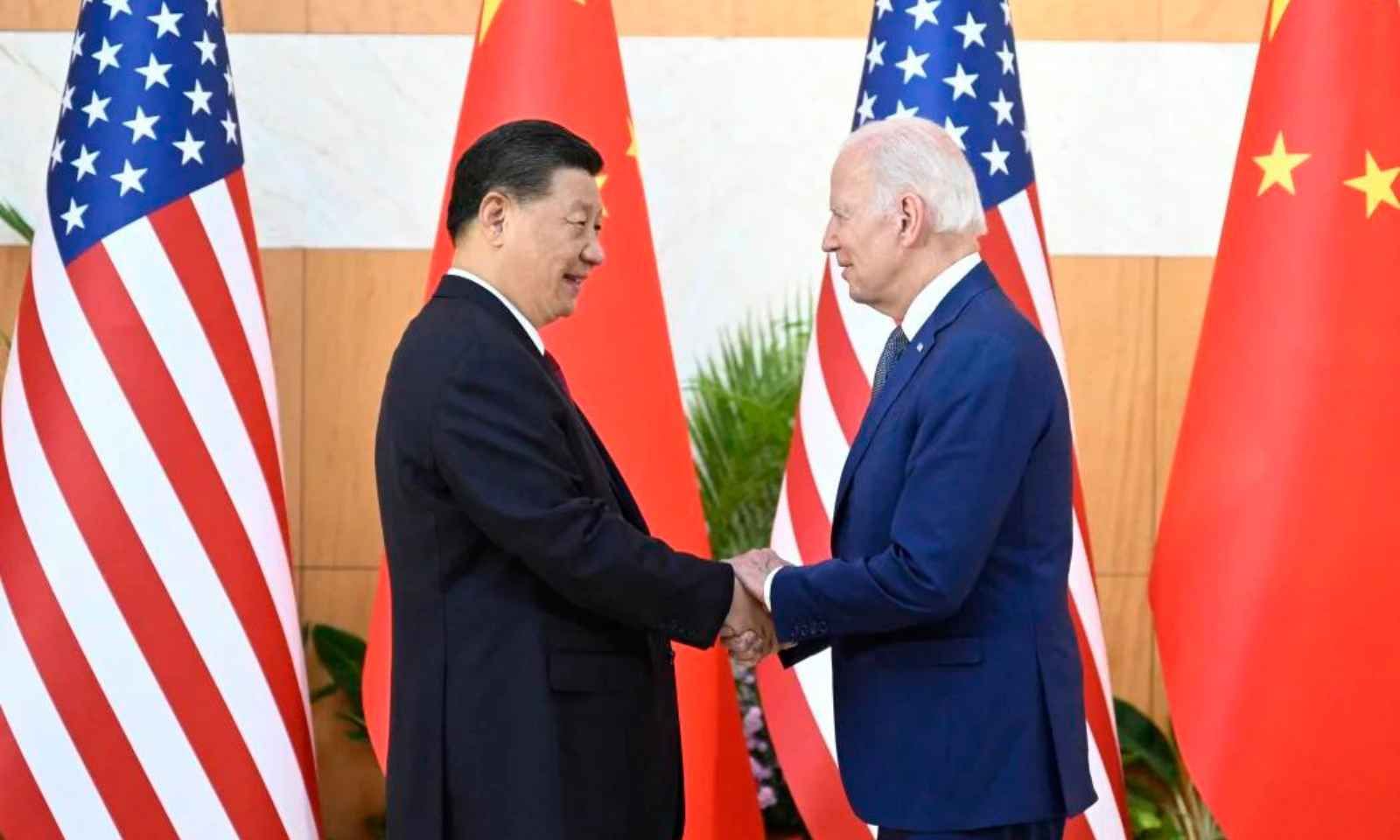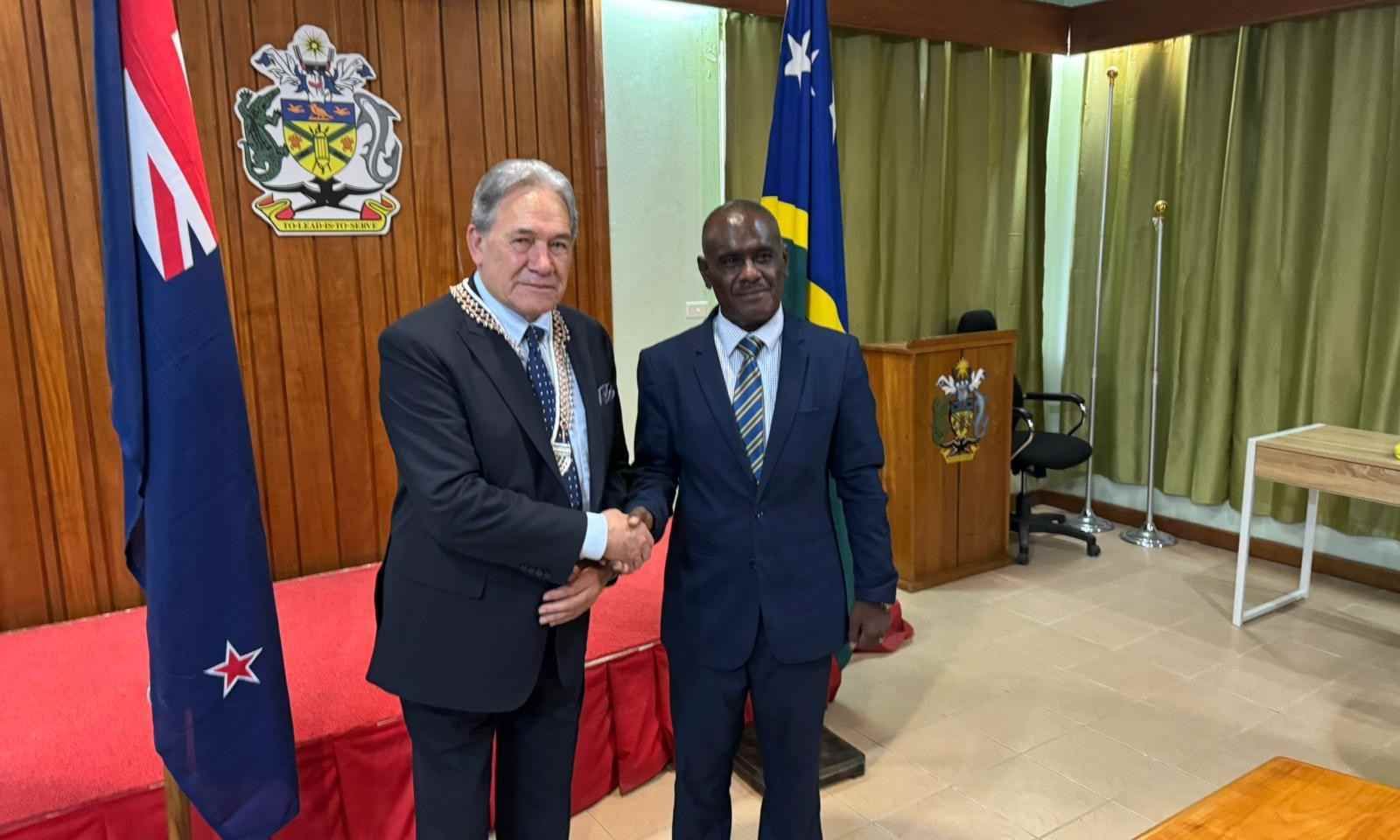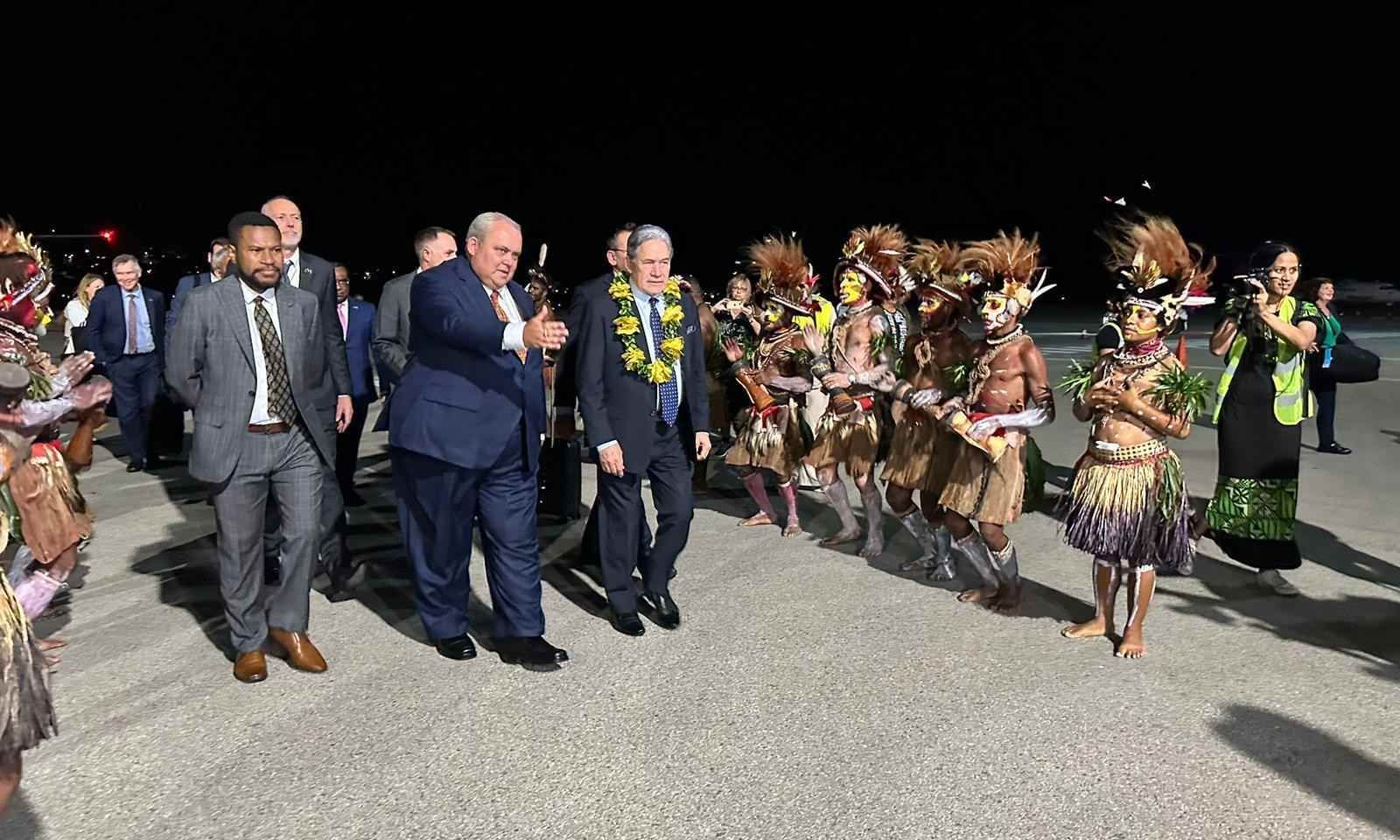

NZ's Deputy Prime Minister Winston Peters gifts PNG Prime Minister James Marape with a Warriors' jersey when the pair met in Port Moresby this week.
Photo/John Tulloch
US-China crisis: NZ and Pacific aiga caught in a diplomatic divide, expert says
Political analyst Robert Patman says Pacific island nations do not accept that they are pawns in the strategic game between Washington and Beijing.



Christmas under the sun: How Pasifika are celebrating amid rising heat, extreme weather




Christmas under the sun: How Pasifika are celebrating amid rising heat, extreme weather

New Zealand's foreign policy has been heavily tested in recent months over China and the Aukus alliance so Aotearoa must take a multidisciplinary approach, politics professor Robert Patman says.
He said this includes examining Aotearoa’s Pacific perspectives on Beijing’s evolving relations in the Indo-Pacific region.
Patman’s comments came amid New Zealand Deputy Prime Minister and Foreign Affairs Minister Vaovasamanaia Winston Peters’ tour of Melanesia this week.
Watch Robert Patman’s interview below.
Patman, of Otago University, said the China-United States competition has been developing for more than 10 years and is a “mixture of engagement and competition”.
He told Pacific Mornings’ host William Terite that China launched its Belt and Road Initiative to expand its economic interaction with several developing countries.
He said since Donald Trump left the White House, US relations in the Pacific have improved and Washington has realised that China is a “systemic threat” to US interests globally.
“I think the US relationship with China is one of real rivalry. It's both a mixture of engagement and competition. And it seems like competition has got the upper hand at the moment.
“The Indo-Pacific region generally is going to be the engine of the global economy in the 21st century and there's been a shift from the transatlantic area to the Indo-Pacific.”
Peters’ five-nation island-hopping included the Solomon Islands, Papua New Guinea, Vanuatu, Tuvalu, and New Caledonia.
But he had to cancel his stopover in the French territory after protests and rioting erupted in the capital Noumea over proposed constitutional reform.
Three people have died and more than 100 were arrested by police as France sent in reinforcements to quell the unrest.

Chinese President Xi Jinping and his American counterpart Joe Biden meet on the sidelines of the G20 summit on 14 November 2022, in Bali, Indonesia. Photo/supplied
French President Emmanuel Macron visited the Pacific, for the first time in July last year, including New Caledonia, Vanuatu, and PNG.
The tour was also seen as a signal of France’s regional step-up and ‘new imperialism’ in the Pacific, which Macron denounced during his visit.
New Zealand has been criticised for its decision to join Aukus, the security pact between Australia, the United Kingdom, and the US. China, NZ’s biggest trade partner, is not happy and so are several Pacific leaders.
Patman said Aotearoa has to tread “very warily”, being mindful that Aukus was set up to counter Chinese expansion and influence in the Pacific.
“China's not happy about this arrangement and New Zealand's aware of the risk. So I think it's trying to strike a balance between not dismissing the possibility, and making up its mind. New Zealand is increasingly aware of the risks of joining pillar two of Aukus.”
On NZ’s relationship with its Pacific neighbours, Patman told Terite, “We shouldn't interpret the quietness of Pacific Island states, many of them are quite unhappy about the fact that New Zealand is considering possible participation in Aukus.
“Aukus does involve the transfer of nuclear power submarines to Australia, and under the Treaty of Rarotonga of 1986, Pacific Island states are committed to a nuclear-free zone/region.
“So Aukus does not sit comfortably with the Treaty of Rarotonga. We in New Zealand believe we have a special relationship with the Pacific. While we value that special relationship, it could be argued that the Pacific island states should be given a voice on whether NZ goes ahead and joins Pillar 2 after all it does affect their interests and it could lead to concerns for many Pacific Island states.

Winston Peters is greeted by Solomon Islands' new Prime Minister Jeremiah Manele in Honiara. Photo/ Michael Appleton
“Aukus is not only about nuclear fuel and proliferation in the region but it might also intensify the US-China rivalry because China has made it quite clear that it sees Aukus as something of a relic of the Cold War.”
During his visit to PNG this week, Peters met with the country’s foreign minister Justin Tkatchenko in the capital Port Moresby.
Tkatchenko said PNG had signed the nuclear-free arms agreement recently which was ratified by parliament and would not support any nuclear weapons in the Pacific region.
“We’ve seen what it’s done in the past to our Pacific brothers and sisters and we don’t want that repeated.”
Patman said while NZ has not lost its influence in the region, Wellington should not take it for granted.
He said the ongoing US-China rivalry should be of concern to the Pacific island nations.
“It's both an opportunity but also a source of concern - opportunity because many of these states are relatively poor. They're quite small, they're microstates in some cases, and this rivalry allows them to play one superpower off against another.
“China, because its capabilities economically have massively increased, is now giving substantial quantities of economic aid to the Pacific island states.
“And while the island states welcome in one sense the rivalry between the US and China, they are also alarmed about it in another because they do not accept that they are pawns in a strategic game between the US and China and will probably want to resist being too tightly aligned with either side.”

Winston Peters is welcomed to Papua New Guinea. Photo/Candice Ama